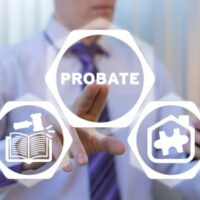The Worst Beneficiaries for Non-Probate Assets

In general, the duties of the personal representative of the estate of a deceased person increase proportionally with the value of the estate. The estate will settle quickly if the decedent owned little property, even if the heirs do not get along with each other. By contrast, probate will take longer if the decedent was wealthier, even if he or she had few outstanding debts and was well organized about finances. It is normal to feel a combination of gratitude and anxiety if a family member tells you that his or her will lists you as personal representative of the estate. As your conversations about your family member’s estate plan continue, though, you may be relieved to find out that the testator has converted some of his or her property to non-probate assets, which can transfer to their designated beneficiaries without waiting for the estate to settle and without the direct involvement of the personal representative. Of course, mistakes by the testator involving non-probate assets can still cause a hassle for the heirs, who could rightfully or wrongfully blame the personal representative. If you are the personal representative of an estate where the non-probate assets are a mess, contact a Dade City probate lawyer.
Designating the Wrong Beneficiary for a Non-Probate Asset Is Counterproductive
A non-probate asset is any item of property that passes directly to the beneficiary upon the original owner’s death, instead of going through probate. Because the asset does not go through probate, it is not part of the estate for which the personal representative is responsible. Some examples of common types of non-probate assets are trusts, transfer on death (TOD) bank accounts, and life insurance policies.
A poor choice of beneficiary for a non-probate asset can cause problems for the heirs. These are some beneficiaries you should not designate for non-probate assets:
- Your estate – By doing this, you turn the non-probate asset into a probate asset.
- Minor children – Children cannot legally own property, so a trustee will need to manage the money for them until they reach adulthood. An estate planning lawyer can help you write a trust instrument that affords the maximum protection for your minor children or grandchildren if you name them as beneficiaries of a trust.
- Estranged relatives and former spouses – If you do not update the beneficiaries on your non-probate assets, your enemies will inherit them.
What Is a Personal Representative to Do If the Decedent Made Poor Choices When Designating Beneficiaries?
If you are a personal representative of an estate, you are only responsible for the assets in the estate. You are not responsible for non-probate assets, unless the testator has also designated you as the trustee of a trust. A probate lawyer can help you resolve disputes with the decedent’s heirs.
Contact a Florida Estate Planning Attorney About Non-Probate Assets
A probate attorney can help you avoid getting caught up in disputes over non-probate assets. Contact The Law Office of Laurie R. Chane in Dade City, Florida to discuss your case.

